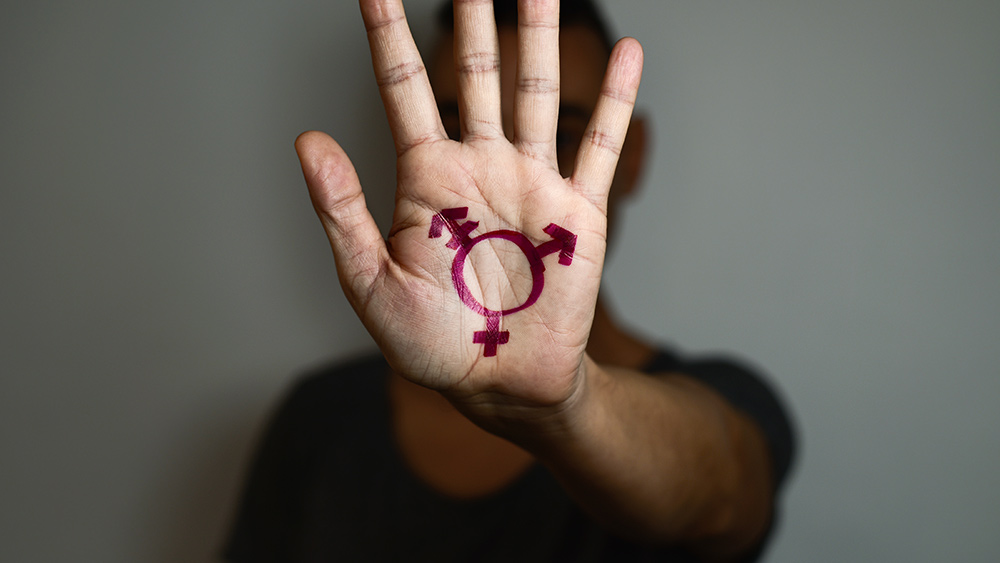
The state of Iowa passed a law officially prohibiting male-to-female (MTF) transgender athletes from competing in female sporting events in schools. The move comes amid a furor over MTF athletes participating and breaking records in different school sporting categories.
Gov. Kim Reynolds signed House File (HF) 2416 into law on March 3. HF 2416 bars athletes born male and now identifying as female from competing in female sports programs in schools effective immediately. A day earlier, the Republican-dominated Iowa Senate passed the measure in a 31-17 vote.
In a statement, Reynolds said the bill "protects girls' sports programs at all school levels – including high school and collegiate levels – in Iowa." She added: "Forcing females to compete against males is the opposite of inclusivity, and it's absolutely unfair."
Under HF 2416, public and private K-12 schools and community colleges are required to designate sporting events as male, female or co-ed. The bill also encompasses colleges and universities affiliated with the National Collegiate Athletic Association (NCAA) and National Association of Intercollegiate Athletics (NAIA).
Only students whose biological sex is female as per their birth certificate will be eligible to compete in female sports events. This effectively bars transgender women and girls from competing in female-only events. However, both female and male students are allowed to participate in a sport designated as co-ed.
"This is a victory for girls' sports in Iowa. No amount of talent, training or effort can make up for the natural physical advantages males have over females. It's simply a reality of human biology," said the Iowa governor.
With HF 2416's passing, Iowa joins other states such as Idaho, Tennessee, West Virginia and Texas that enacted similar legislation banning MTF transgender athletes from participating in female sports events. Some of these states are now facing legal actions over these laws. (Related: Utah legislature advances bill banning transgender girls from female sports.)
Angus Raymond, chairman of LGBT advocacy group One Iowa Action, denounced the new law in a statement. "Despite overwhelming opposition and a plethora of medical and mental health experts giving testimony to how this will cause harm, Reynolds is telling Iowa's transgender children and youth that they are unimportant. We are profoundly disappointed in the legislature and the governor's office."
Many speaking out against MTF athletes dominating female sports
HF 2164 comes amid the issue surrounding MTF transgender swimmer Lia Thomas. The University of Pennsylvania (UPenn) student athlete, born Will Thomas, initially competed as a male swimmer. Failing to make waves while competing in the men's swimming category, Thomas took one season off and returned – this time as a female competitor. "She" broke previous records in different women's swimming events, drawing the ire of other swimmers born female.
"I've been a swimmer since I was five years old. Being [transgender] has not affected my ability to do this sport, and being able to continue is very rewarding," Thomas told the university's newsletter Penn Today.
While Thomas claims "her" participation in women's swimming is "very rewarding," other members of the UPenn women's swimming team believe otherwise. Sixteen of them even argued that allowing Thomas to continue competing creates an "unfair advantage."
"We fully support Lia Thomas in her decision to affirm her gender identity, and to transition from a man to a woman. However, we also recognize that when it comes to sports competition, the biology of sex is a separate issue from someone's gender identity. Biologically, Lia holds an unfair advantage over competition in the women's category, as evidenced by her rankings that have bounced from No. 462 as a male to No. 1 as a female," the 16 swimmers wrote in a Feb. 3 letter to UPenn and Ivy League officials.
More related stories:
Ex-Olympian: Transgenders born as biological men should not compete as "women" in sports.
WATCH: Female athlete speaks out against transgender agenda ruining women's sports.
How Testosterone-fueled Trans athletes are erasing women in sports.
Watch Michael Quinn, founder of Dissident Right Media, talking about transgender athletes dominating women's sports below.
This video is from the Dissident Right Media channel on Brighteon.com.
Visit Gender.news for more stories about transgender athletes participating in women's sports.
Sources include:
Please contact us for more information.





















